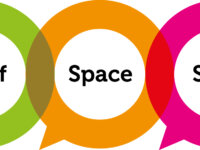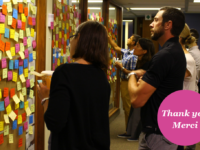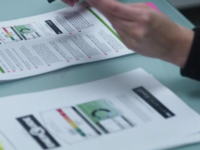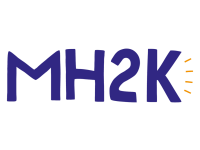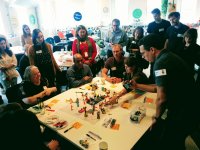Comoodle was developed to create a genuine sharing economy in Kirklees, fundamentally shifting the relationship between the Council and the community in the process.
Comoodle is a web based platform, an elegant solution to enable collaboration, that is now helping local communities to access and share under-used resources.
There is no other platform that exists across in the world that has public sector bodies actively sharing “stuff skill and spaces” in such a proactive and accessible way
Innovation Tag: Design
Tens of millions of Americans are eligible to clear their criminal record, but due to a complicated, costly, and time-consuming process, only a small fraction have been able to do so. Clear My Record makes automatic record clearance possible by using an open source algorithm to review records, determine eligibility, and produce clearance motions. It shifts the burden of record clearance off of individuals by enabling the government to clear all records at scale and reinvest in communities.
The OEE established a Social Innovation "UnLab" (SIU) to test an embedded innovation model and amplify energy efficiency policy and service impacts in Canada. The SIU creates value for energy efficiency stakeholders in three ways:
Building relationships and capacity for energy efficiency policy and service innovation;
Generating evidence and collective learning by co-creating and testing insights and interventions;
Amplifying impacts by scaling learning and implementing what works.
A first of its kind (in our context), cross-jurisdictional partnership between three levels of government to research, co-design and test prototypes with citizens to inform and improve the experience and uptake of home energy efficiency labeling and reporting.
The core team was comprised of representatives from Natural Resources Canada’s (NRCan) Office of Energy Efficiency (OEE), the Province of Alberta’s CoLab, and the City of Edmonton with service design support from Situ Strategy.
Case Study
CityScope FindingPlaces: HCI Platform for Public Participation in Refugees’ Accommodation Process
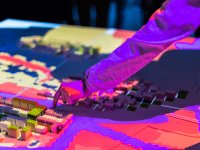
In reaction to the sudden arrival of tens of thousands of refugees to the city of Hamburg (DE), MIT and Hafen City University's City Science Lab created a public participation and decision-making process for refugee accommodation in Hamburg neighbourhoods. 'CityScope FindingPlaces', an Human Computer Interaction platform, was designed and deployed to facilitate dozens of community meetings with ~500 participants, resulting with 160 locations accepted by Hamburg’s citizens to be developed for…
Mental health issues affect about 1 in 10 young people in the UK. MH:2K gives young people a leadership role in solving this most important of challenges. It empowers 14-25 years old to identify the mental health issues they see as most important, engage their peers in exploring these topics, and work with decision-makers to make recommendations for change.
The lab brings citizens and stakeholders together in a structured design process to form a common realisation of present challenges and pathways to the future. The stakeholders engaged are all identified and relevant to the target group. They are part of a national ecosystem from user, practitioner to policymakers locally, regionally and nationally. The design methods used in the lab are visualizations of processes, gap analysis and aesthetic disruption to enable needed cultural transformation.
The Better Government Movement (BGM), housed on Innovation.gov, builds a 21st century, delivery-driven government. BGM creates an inclusive space where public servants can grow their creative capacity and learn new tools, approaches, and mindsets to jumpstart innovation. This is in service of solving government-wide problems and affecting positive change within agencies and government writ large.
The Australian Government piloted and developed MyService, a simple, intuitive and innovative digital solution significantly improving veterans' experience when accessing Health Care, Compensation, Income Support and Commemorations for war veterans, members of the Australian Defence Force, their dependants and certain members of the Australian Federal Police. It empowers veterans by helping them get the assistance they need with less stress and increased trust in the outcomes.
A collaboration between government and community, Systemic Design eXchange (SDX) is an Edmonton-based community of practice for people interested in learning about systemic design as a methodology for addressing complex, real world issues. Together, we explore systems thinking, design thinking, and change lab approaches. With a bias towards learning by doing, SDX aims to be a watering hole where multiple sectors can come together, learn together, and act together.

